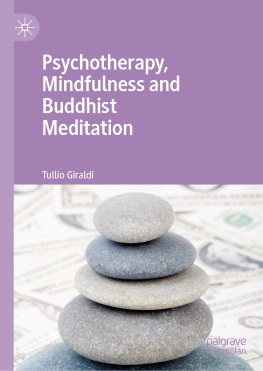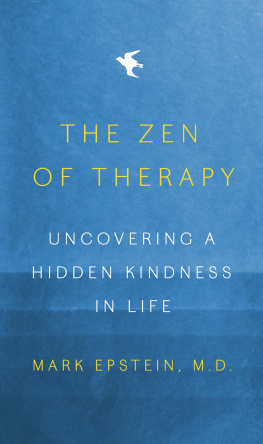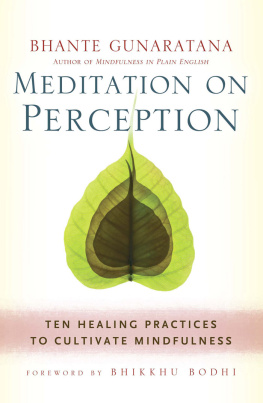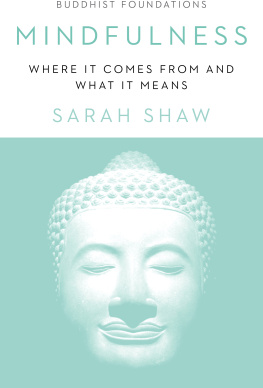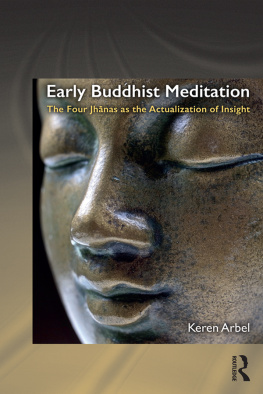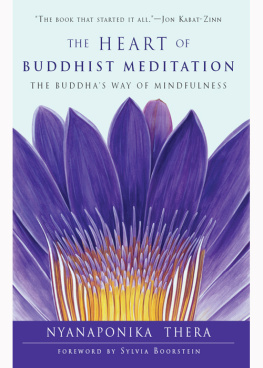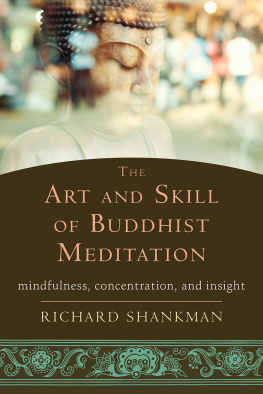Tullio Giraldi - Psychotherapy, Mindfulness and Buddhist Meditation
Here you can read online Tullio Giraldi - Psychotherapy, Mindfulness and Buddhist Meditation full text of the book (entire story) in english for free. Download pdf and epub, get meaning, cover and reviews about this ebook. year: 2019, publisher: Springer International Publishing, genre: Religion. Description of the work, (preface) as well as reviews are available. Best literature library LitArk.com created for fans of good reading and offers a wide selection of genres:
Romance novel
Science fiction
Adventure
Detective
Science
History
Home and family
Prose
Art
Politics
Computer
Non-fiction
Religion
Business
Children
Humor
Choose a favorite category and find really read worthwhile books. Enjoy immersion in the world of imagination, feel the emotions of the characters or learn something new for yourself, make an fascinating discovery.
- Book:Psychotherapy, Mindfulness and Buddhist Meditation
- Author:
- Publisher:Springer International Publishing
- Genre:
- Year:2019
- Rating:4 / 5
- Favourites:Add to favourites
- Your mark:
- 80
- 1
- 2
- 3
- 4
- 5
Psychotherapy, Mindfulness and Buddhist Meditation: summary, description and annotation
We offer to read an annotation, description, summary or preface (depends on what the author of the book "Psychotherapy, Mindfulness and Buddhist Meditation" wrote himself). If you haven't found the necessary information about the book — write in the comments, we will try to find it.
Psychotherapy, Mindfulness and Buddhist Meditation — read online for free the complete book (whole text) full work
Below is the text of the book, divided by pages. System saving the place of the last page read, allows you to conveniently read the book "Psychotherapy, Mindfulness and Buddhist Meditation" online for free, without having to search again every time where you left off. Put a bookmark, and you can go to the page where you finished reading at any time.
Font size:
Interval:
Bookmark:
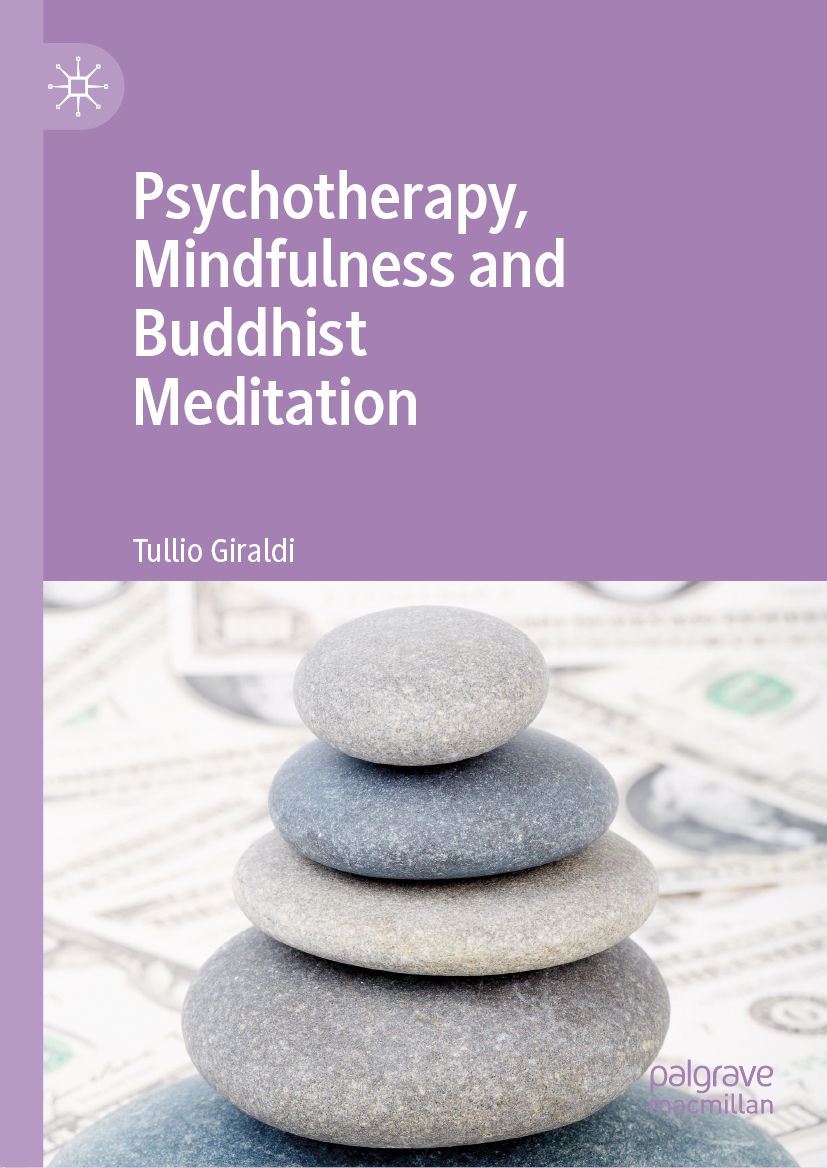

Cover illustration: Leks_Laputin/gettyimages
This Palgrave Macmillan imprint is published by the registered company Springer Nature Switzerland AG
The registered company address is: Gewerbestrasse 11, 6330 Cham, Switzerland
To my family, with a huge thankfulness for the support and patience during the writing of this book, which must have been a challenge greater than that they have to face during my previous writings.
I have an even greater debt of gratitude to my wife Vlady for her unfailing love, accompanied during my writings by generous supplies of coffee and macaroon biscuits.
This work should not have been possible without the personal and professional growth which I had thanks to the encounter with numerous outstanding personalities and institutions which I had the privilege to meet and to work with. I shall not attempt to name all of them to avoid omissions which would be inexcusable, and I shall necessarily make impersonal references.
My Alma mater is the University of Trieste, Italy, where I completed my studies and later spent large part of my academic career as a professor of pharmacology and related topics. There I had the occasion to develop a critical mind towards the understanding of the world in an objective (scientific) perspective, aware of the fallacies of the beliefs affecting human attempts to understand the inner and outer world.
My initial interests on pharmacology were on chemotherapy, and later moved towards the brain and the drugs modifying its functions. In this connection, I could participate to the dramatic changes in psychiatric care which happened in Trieste beginning in the 60s, thanks to the realization of the revolutionary approaches of Franco Basaglia in the local Department of Mental Health of the community care services of the National Health System. These initiatives led to marked changes of the legislation in Italy, and are still at the focus of the attention by the international psychiatric community and WHO. My psychiatric interests were also enriched by becoming a clinical psychologist with a training in psychotherapy as a transactional analyst which I received in Bologna, Italy.
A distinct enrichment was provided to me by outstanding British institutions. As a young visiting scientist I had a remarkable experience at the old Chester Beatty Research Institute, London, in mid-70s. This had to be followed much later by my current visiting professorship at the Global Health and Social Medicine Department of the Kings College, London. This is a place of excellence, where the founder and past director, together with a growing academic staff, provided original critical views of the continuously debated critical issues of mental health: it is while in this department that I had the occasion to develop some of the ideas which led to writing this book.
A crucial event in my life was the encounter with Buddhism, which led me to the practice of Rinzai Zen which I began in the late 70s at the Zenshin-ji monastery in Orvieto, Italy. I followed there the teachings of master Engaku Taino along the lineage of Yamada Mumon Roshi, and it is with this master at this temple that in 1971 I was ordained a lay Buddhist monk.
These are the experiences along which my experiences developed, and I mentioned them to let the reader of this book to understand the background of my efforts to provide a critical perspective for the recent explosive growth of mindfulness, with its isolation from Buddhist meditation which occurred with its transplantation into current Western culture.
These are also hints which will allow to understand why I cannot cite name by name all the numerous and beautiful persons and minds, teachers and students, researchers and discoverers, and companions along the Way of life, from which I learnt so much and to whom I have an incommensurable debt of gratitude that I recognize and acknowledge here with the greatest gratefulness.
I wish finally to thank Tristan Grove for his careful work of copy editing.
Since this work is intended also for a general readership, the terms of Pali and Sanskrit origins are transliterated without the diacritical marks that would have been appropriate in a work of a more scholarly nature.
Similarly, the Japanese words will be used retaining the system of Romanization used in the original documents cited.
Mindfulness is the word which had been used as a translation of the Pali term sati since the early English translations of Buddhist scriptures. With the diffusion of the mindfulness movement and applications in the West, and particularly with its diffusion into the world of medicine and psychology, the term of mindfulness began to be used also in an undifferentiated way as a synonym of meditation . The terms of mindfulness and meditation will be therefore retained without further specification as used in the original documents cited.
Acceptance Behaviour Therapy, Acceptance and Commitment Therapy
AIPTAdult Improving Access to Psychological Therapies
APAAmerican Psychiatric Association
BABehavioural Activation
BDIBeck Depression Inventory
BNFBritish National Formulary
CAMComplimentary Alternative Medicine
CBTCognitive Behavioural Therapy
CCBTComputerized Cognitive Behavioural Therapy
CEDARClinical Education Development and Research
CTCognitive Therapy
DALYDisability Adjusted Life Years
DBTDialectical Behaviour Therapy
DMHDepartment of Mental Health
DSMDiagnostic and Statistical Manual (of Mental Disorders)
Font size:
Interval:
Bookmark:
Similar books «Psychotherapy, Mindfulness and Buddhist Meditation»
Look at similar books to Psychotherapy, Mindfulness and Buddhist Meditation. We have selected literature similar in name and meaning in the hope of providing readers with more options to find new, interesting, not yet read works.
Discussion, reviews of the book Psychotherapy, Mindfulness and Buddhist Meditation and just readers' own opinions. Leave your comments, write what you think about the work, its meaning or the main characters. Specify what exactly you liked and what you didn't like, and why you think so.

